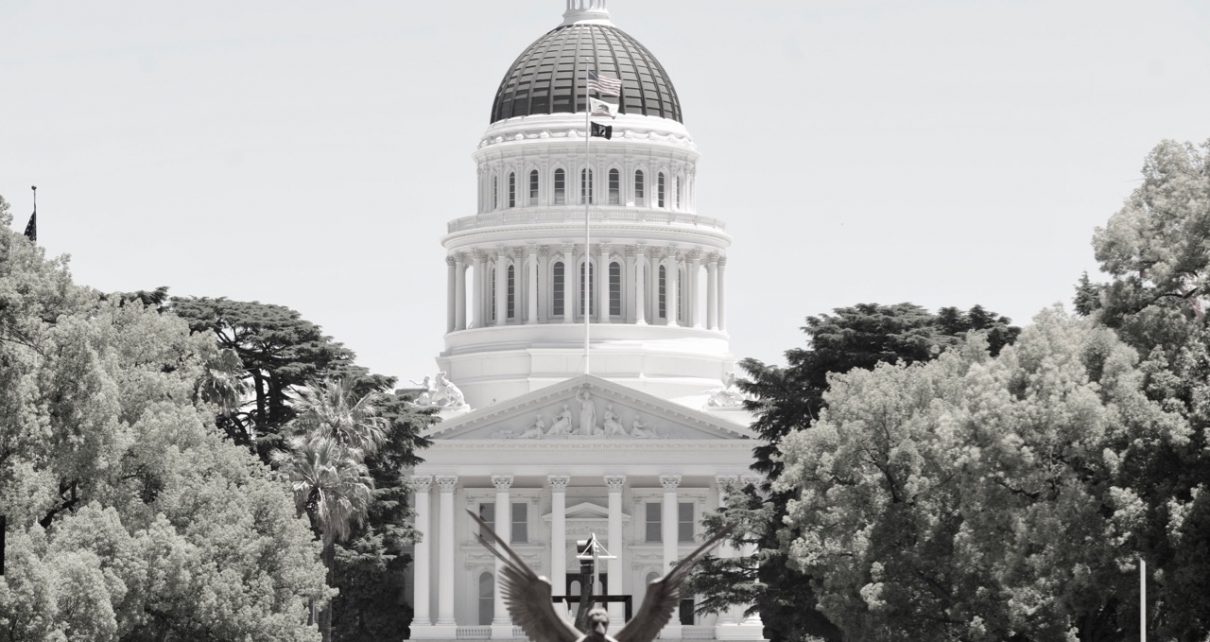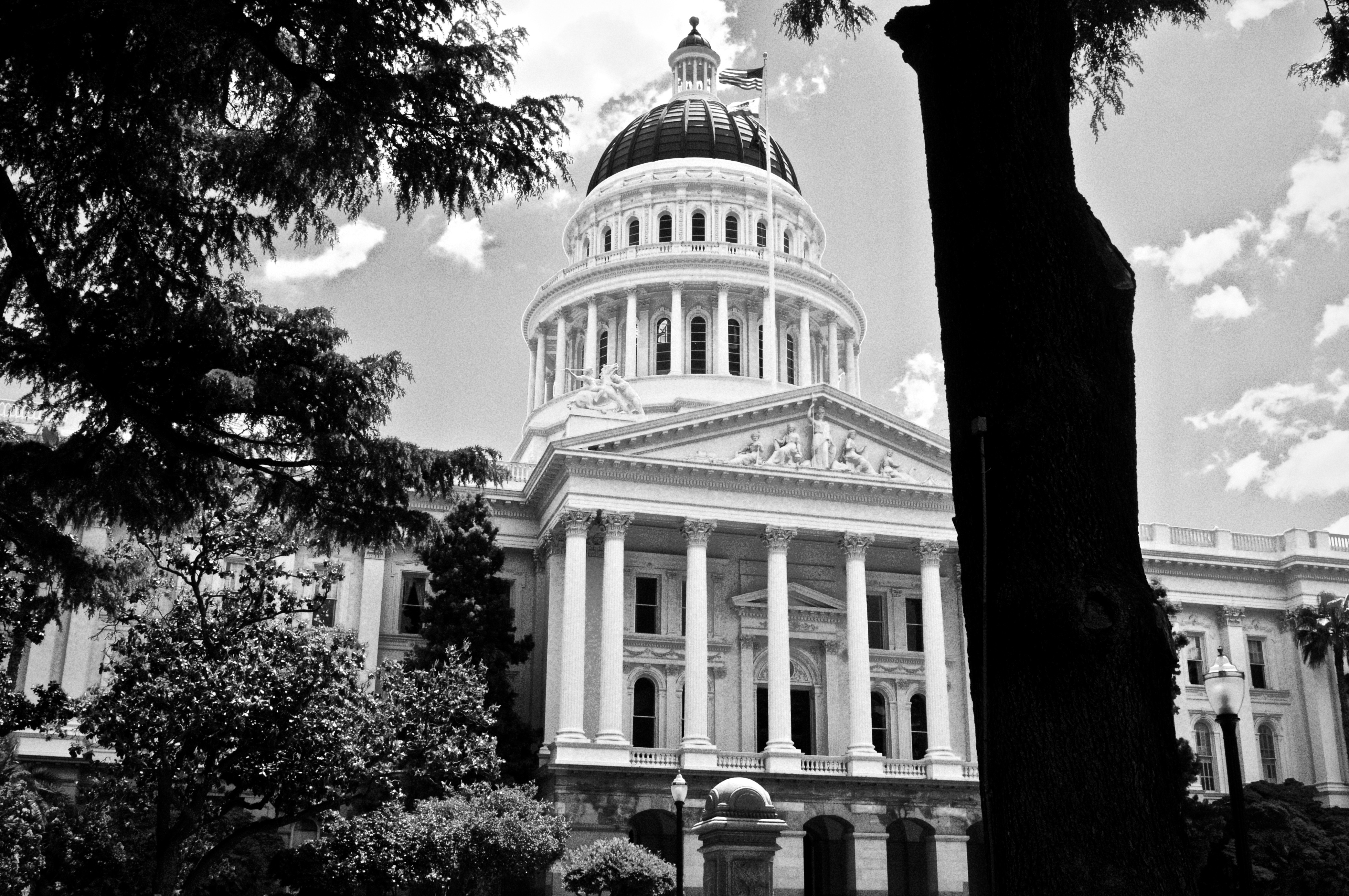
California State Capitol. (Photo: Kevin Sanders for California Globe)
Lobbying State Agencies
Both policy and fiscal state agencies influence legislation in the California legislative process
By Chris Micheli, July 29, 2019 2:05 am
An important, but often over-looked, component of lobbying for or against legislative changes is working with the relevant state agencies or departments to secure a favorable recommendation on the bill that you are lobbying. There are both policy and fiscal state agencies who influence legislation in the California legislative process, but also when a bill reaches the Governor’s Desk for final action.
As a result, administrative agencies of state government are often important players in public policy development both as it relates to pending legislation being considered by the Legislature and, ultimately, to a determination by the Governor. For example, by influencing pending legislation that impacts their jurisdiction (such as air quality by the California Air Resources Board), interest groups, the Legislature, and the Governor are influenced by the views of these state agencies on bills.
Because they are a part of the executive branch of government, these state agencies, departments, boards, and commissions are generally directly accountable to the Governor. As a result, they play an important role in advising the Governor and his or her staff on pending legislation. As such, those involved in legislative advocacy must engage with these administrative agencies, often early in the legislative process, to ensure that the agencies are aware of your client’s position and its views on particular bills.
Because of their input to the Governor, legislators and interest groups must be aware of the views of these agencies and departments when considering legislation and the pros and cons of particular bills being voted upon. The recommendations of state administrative agencies, just like their federal counterparts, carry great weight with the Governor and his or her staff when making final decisions on the outcome of legislation.
Because of this, legislators, staff and lobbyists must consult with state agencies while legislation is pending, rather than waiting until a bill is on the Governor’s Desk and it is too late to fix any problems the state agencies may have identified. Unfortunately, many advocates seem to forget the role and the influence that these state agencies exert in the legislative process.
In addition to the views of these state agencies that have subject matter jurisdiction over a bill, every measure that has a fiscal impact is analyzed by the Department of Finance (DOF). DOF makes a recommendation to either sign or veto each bill that reaches the Governor’s Desk and, if the bill would adversely impact the fiscal health of the State, one can expect not only a veto request by DOF, but also a likely veto by the Governor based upon the last few Administrations. In other words, regardless of whether the Governor is a Democrat or a Republican, DOF appears to have tremendous sway over the final outcome of measures.
As such, long before a bill reaches the Governor’s Desk, a lobbyist should get a “read” on how the Governor is likely going to view the measure, whether he or she is likely to sign or veto it, and what the lobbyist needs to do to influence that decision. One important way to do this is to determine what the views of the relevant state agency or department are early in the process and what they will likely say to the Governor’s staff about the particular bill.
These state agencies, departments, boards, and commissions provide informal and informal advice on pending legislation. The informal advice can be transmitted to the Governor’s Office, and be as simple as in-person conversations or emails, while formal advice comes in the form of a written analysis of the bill, usually accompanied by a recommendation for an official position.
All of these written analyses are first sent to the Agency which oversees the department, board or commission for approval of the analysis and whether to approve a recommended position on the measure. Thereafter, the Agency forwards the analysis to the Governor’s Legislative Unit and the Deputy Legislative Secretary who has jurisdiction over that subject matter then decides whether to approve the recommended position.
It is only upon that approval by the Governor’s Office, whether it is an agency analysis or the DOF’s analysis, that the department or DOF can take a public position on the pending measure. The author’s office receives a copy of the approved analysis and the DOF analyses are posted on their website for public view.
As set forth above, it is important for lobbyists to recognize the important role that the Administration’s agencies and departments play in preparing these bill analyses. The purpose of the bill analysis is to provide the Governor, his or her staff, agency secretaries, department heads, and the Department of Finance with information concerning the possible programmatic and fiscal effects of pending legislation.
It is a good practice to share your client’s support or opposition letters with the relevant agency and department, as well as the DOF, so that they have this information when researching and preparing their bill analyses. Once the position is made public, then it is hard to have any impact on that particular analysis and it is rare for any state agency to withdraw its analysis, let alone change its recommended position.
Again, until approved by the Governor’s Office, bill analyses prepared by departments under the administrative authority of the Governor are not public documents and may not be made available to anyone outside of the review process. Once a position has been approved by the Governor’s Office, an analysis consistent with that position generally is made available to the public and the Legislature for their consideration.
Thereafter, when a bill is passed by the Legislature and sent to the Governor, an Enrolled Bill Report (EBR) is prepared for the Governor’s Office by departments with subject matter jurisdiction, as well as the Department of Finance when there is a fiscal impact. The EBR serves essentially the same function as the legislative bill analysis except that it recommends to the Governor what action (i.e., sign, veto, allow bill to become law without a signature) should be taken on the measure.
As opposed to the legislative bill analyses, EBRs are considered confidential communications with the Governor and are not public documents and do not become public unless a Governor chooses to make them available after he or she leaves office. Consequently, even if approved, EBRs are not released to the public by anyone without Governor’s Office approval.
DOF prepares EBRs for all bills enrolled to the Governor if they are determined to have a fiscal impact. EBRs are not prepared for constitutional amendments and resolutions because these types of legislative measures are not sent to the Governor for approval. The DOF’s analysis and recommendation can be one of the most influential ones presented to the Governor.
Although DOF’s focus is primarily fiscal in nature, occasionally DOF does raise policy concerns with a bill. In terms of bill analyses versus EBRs, the general rule is that, for bills that were opposed during the legislative process, the DOF’s EBR usually recommends a veto. On the other hand, if the DOF supported a bill during the process, then its recommendation in the EBR is usually to sign the measure. DOF can also take a neutral position on a bill and not recommend a signature or a veto. It is important to present both policy and fiscal arguments to the DOF.
Most of the analyses prepared by state agencies and departments are a few pages in length and often identify implementation concerns or issues that have been identified by the department or agency. Their role is not to re-state what legislative committee analyses do; rather, after a short explanation of what the bill would change in existing law, these analyses focus on the department’s specific concerns or views of the measure.
- Probate Code Could Be a Basis for Statutory Interpretation Principles - February 22, 2026
- Conservation Banks - February 22, 2026
- Mergers of Unincorporated Associations - February 21, 2026




